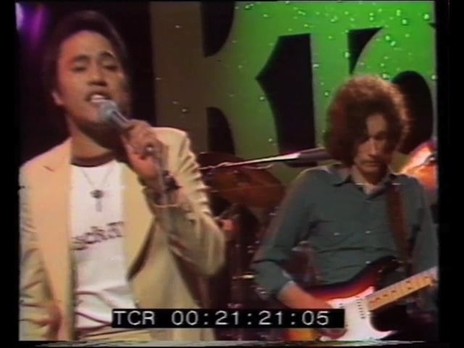Beaver
aka Beverley Jean Morrison
One of New Zealand music’s most distinctive voices, sadly under-recorded, Beaver was a “singer’s singer” discovered by Bruno Lawrence, who could handle cabaret and jazz as comfortably as blues, rock and soul.
When Bruno Lawrence was introduced to Beaver in 1971, his immediate response to her husky tones was, “Lovely voice, do you sing?” Indeed, the shy 20-year-old frequented the Wellington Musicians’ Club, taking to the microphone when invited, but only when crowds were small. Overcoming her shyness was Beverley Morrison’s biggest obstacle.
Beaver - Don't You Just Know It (live at Mainstreet, Auckland, 1984, as part of All Stars Play The Blues)
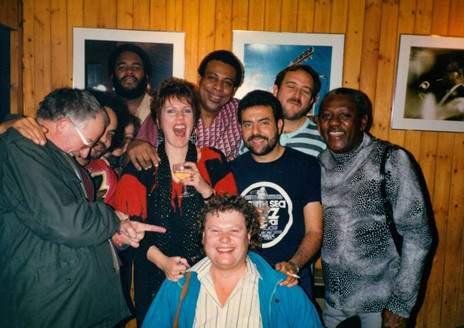
Beaver, Andy Brown (left) and Geoff Castle (front) with the Cuban band Irakere, which also performed at London club Ronnie Scott's during Beaver's season there in 1987
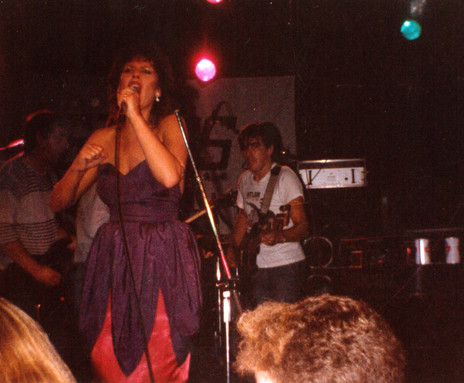
Beaver at the Gluepot, with Paul Woolright on bass at left
Beaver - Live at Mainstreet, Auckland, 1984, as part of All Stars Play The Blues
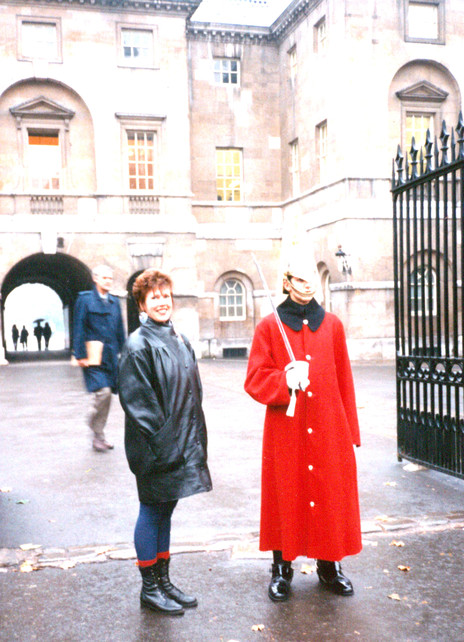
Beaver in London, c. 1987
Bunny Walters sings 'Welcome Back' on Ready To Roll backed by players including Kevin Bayley, Carl Evensen, and Clinton Brown, with Val Murphy, Tony Backhouse and Beaver on backing vocals.
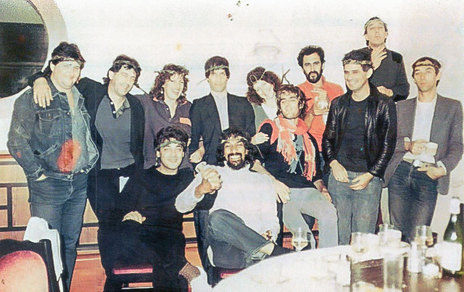
All-Stars Play the Blues end of tour dinner at Christchurch, 1984. Rear, left to right, Dennis Ryan, Hammond Gamble, Beaver, Wilko Johnson, Jane West, Neil Edwards, Paul Walker, Midge Marsden, Mike Farrell. Front, Walter Bianco, Sonny Day, Paul Hewson.
Photo credit:
Photo by Wiiliam West. Courtesy of Paul Walker.
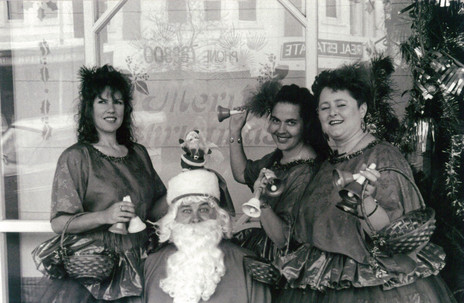
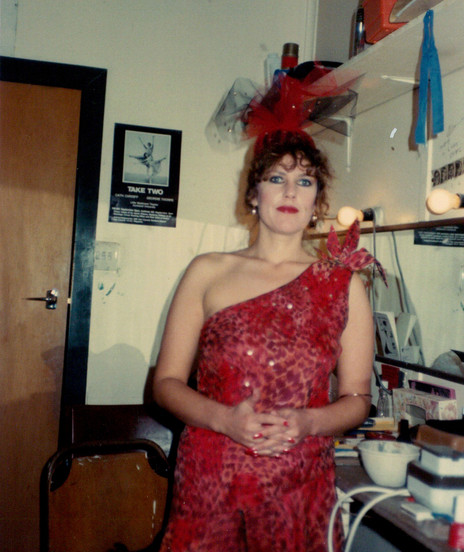
Beaver, backstage for Torch Song Trilogy
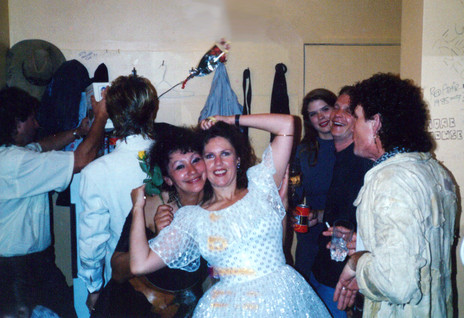
Josie Rika and Beaver, backstage, c. 1990. On the right are Nikki Walker, Paul Walker and Graham Brazier
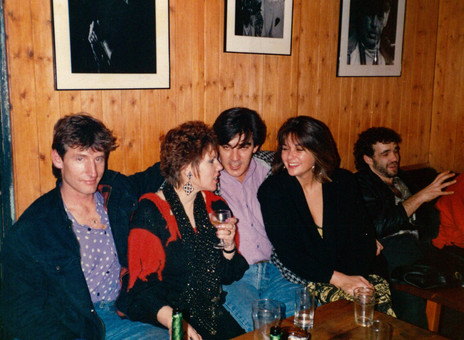
Beaver, inside Ronnie Scott's club with Dave McArtney, left, and Paul and Frances Woolright, London, 1987.
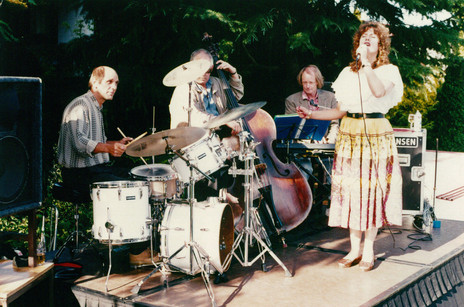
Beaver at the Mon Desir, Takapuna, with Bruno Lawrence on drums, Andy Brown on bass, and Peter Woods on keyboards
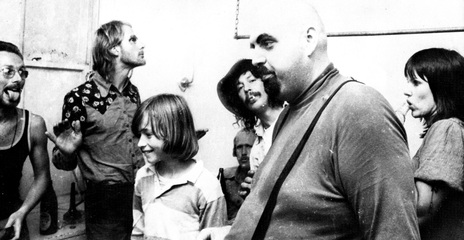
BLERTA in Australia: left to right: Greg Taylor, Fane Flaws, Paul Murphy, Bernie McGann, Mick Lieber, Ian Watkin, Beaver
Photo credit:
Photo by Robin White. Fane Flaws Collection
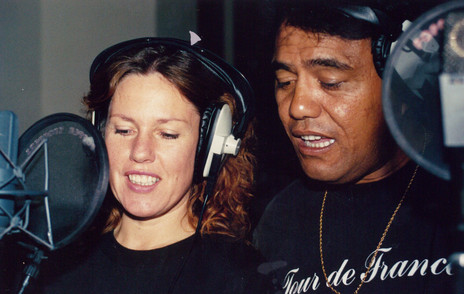
Beaver recording 'The Biggest Love' with Bunny Walters, produced by Rob Winch at Marmalade Studios, Wellington, 1990. The song was by Paul Davidson
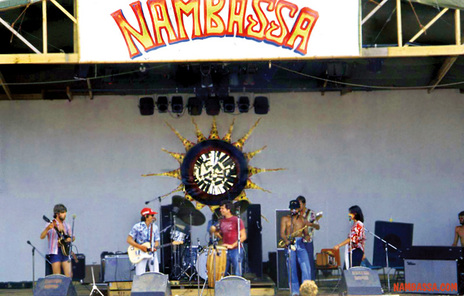
Midge Marsden with Beaver and Andy Anderson on the main stage, 1978
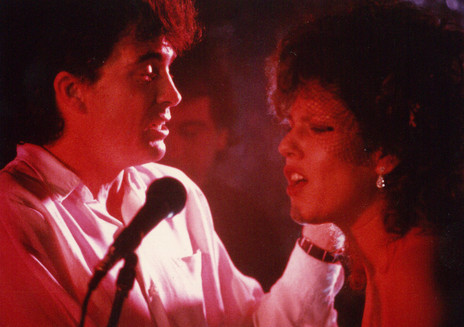
Nat and Julie - the characters played by Harry Lyon and Beaver - perform together in the 1985 film Should I Be Good?
Beaver performing What Do You Want The Boy To Do? on Dixie Chicken (1987)
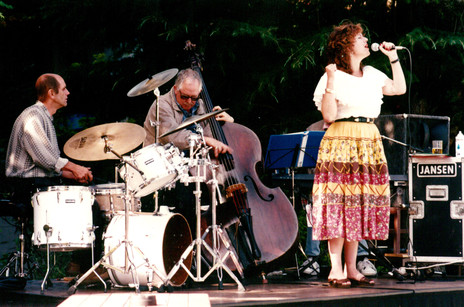
Beaver at the Mon Desir, Takapuna, with Bruno Lawrence and Andy Brown
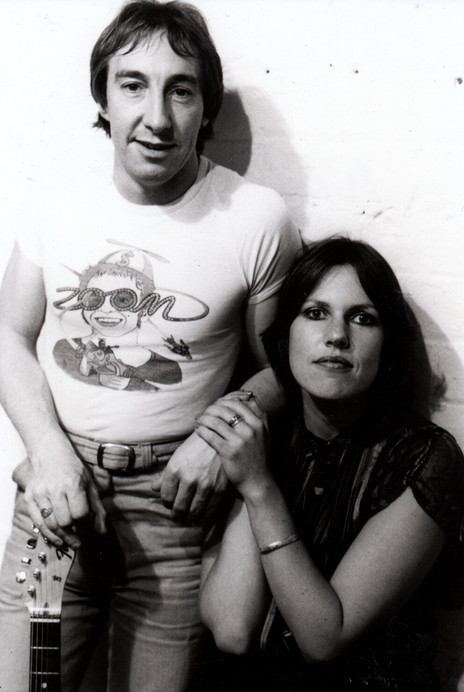
Midge Marsden and Beaver at The Island of Real
Photo credit:
Photo by Murray Cammick
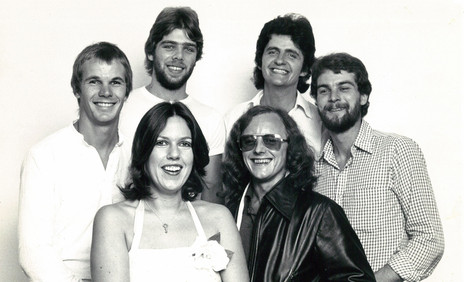
Beaver with The Flyers, 1978. Clockwise from bottom: Beaver, Neil Hannan, Richard Kennedy, Paul Clayton, David Gandar and Bud Hooper.
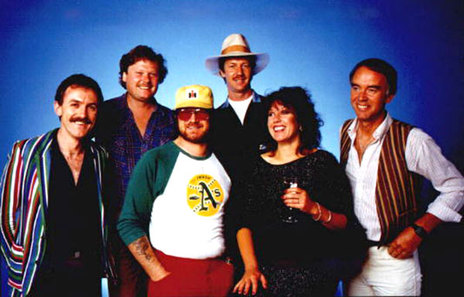
Billboard, the Auckland Club Band with Ian Fraser, Geoff Castle, Martin Winch (in hat at back), Billy Kristian (in cap), Beaver, and Brian Smith. This was taken mid-1983.
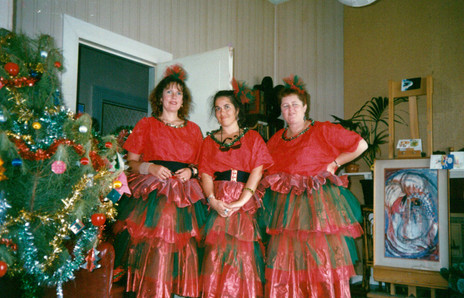
Christmas Fairies was a lunchtime series of concerts at the Aotea Centre, Auckland, in 1991, featuring (from left) Beaver, Olivia, and Hattie St John
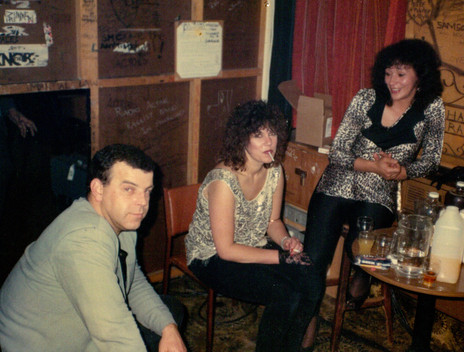
Backstage pass: Rick Bryant, Beaver and Josie Rika, in the Gluepot band room, c. 1984.
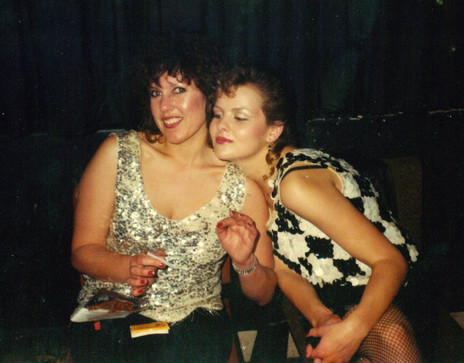
Beaver and Kim Willoughby, 1980s.
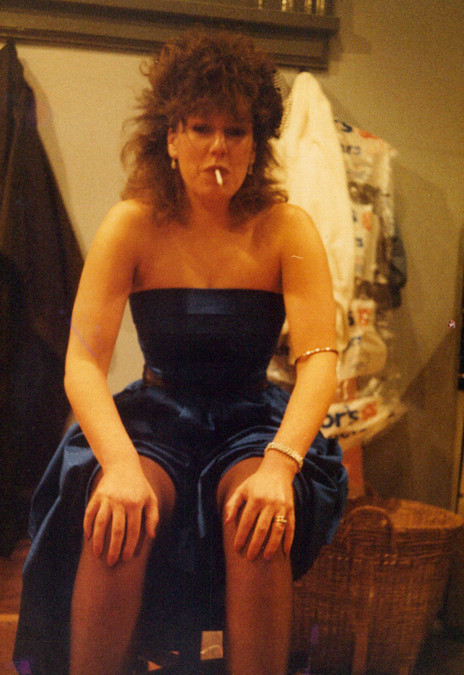
Beaver in the Harvey Fierstein play Torch Song Trilogy
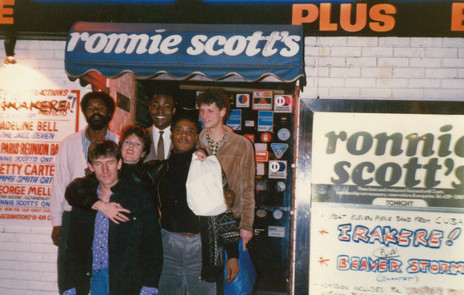
Beaver with the Cuban band Irakere, outside Ronnie Scott's club, London, 1987. In front is Dave McArtney
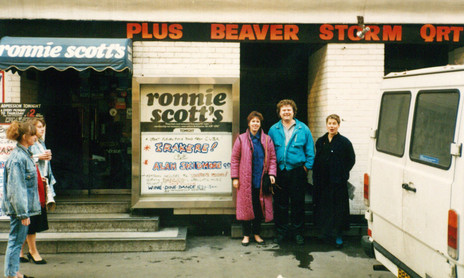
Beaver outside Ronnie Scott's, London, with Auckland keyboardist Geoff Castle, 1987
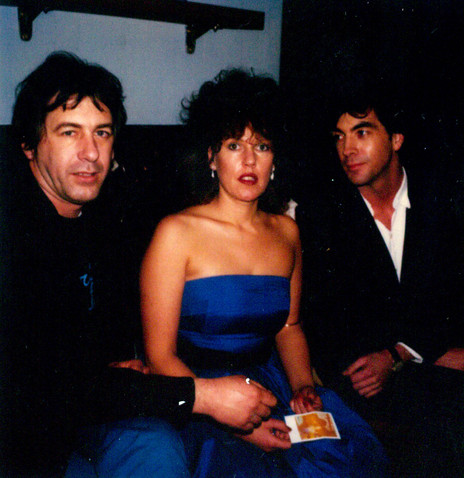
Hammond Gamble, Beaver and Harry Lyon, at the time of the 1985 film Should I Be Good?
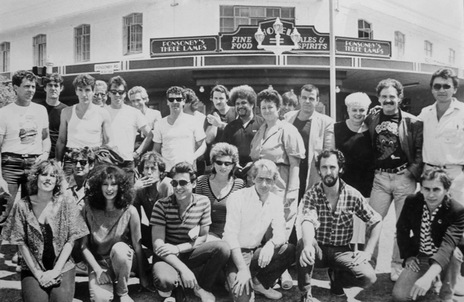
Assorted bands that trod the stage upstairs at The Gluepot, circa 1985. Amongst the faces are Hello Sailor, promoter Mike Corless, Beaver, Josie Rika, Hattie St. John, Hello Sailor's manager David Gapes, Rick Bryant, Trudi Green and Sam Ford of The Neighbours, Neil Edwards, Phyllis, booker Eddie Cook and Hammond Gamble.
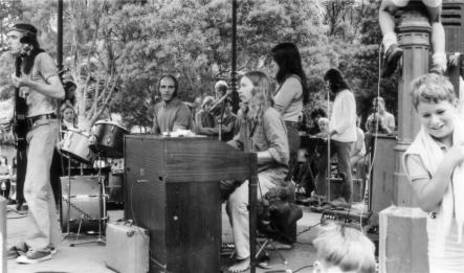
BLERTA kids show at Pukekura Park, New Plymouth on the first North Island tour, 1972. Corben Simpson (vocals), Bruno Lawrence (drums), Alan Moon (Hammond organ), Beaver vocals and Chris Seresin keyboards.
Photo credit:
Photo by Helen Whiteford
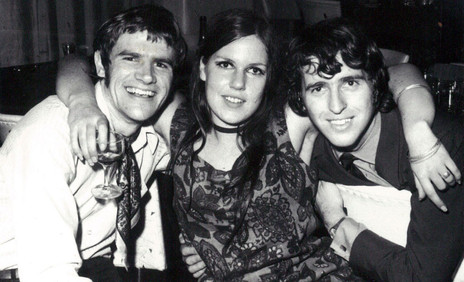
Beaver and friends celebrate the last night of performing in Oklahoma!, 1970

Beaver with guitarist Grant Ryan, Auckland, 1991
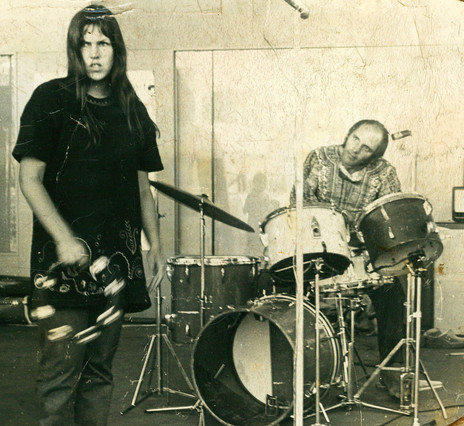
Beaver and Bruno Lawrence in BLERTA, 1973
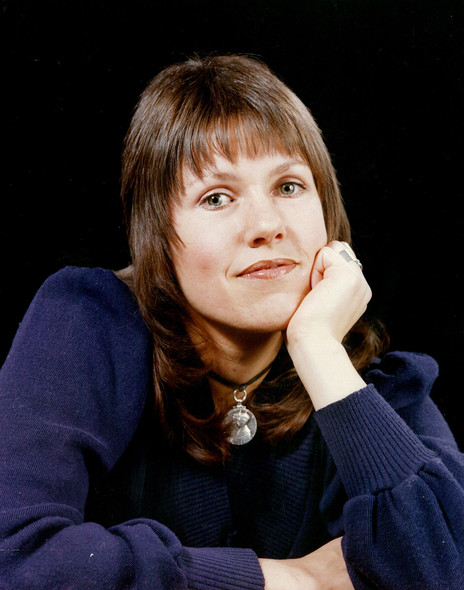
Beaver, c. 1974
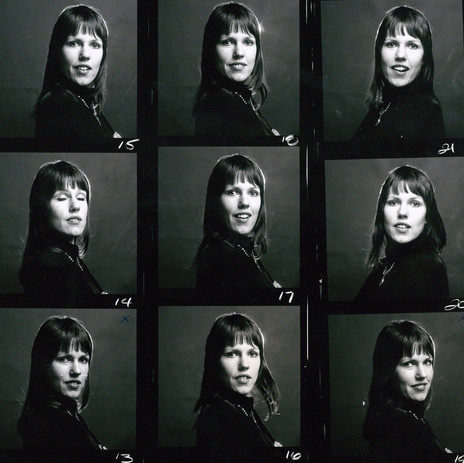
Beaver, proof sheets, circa 1974
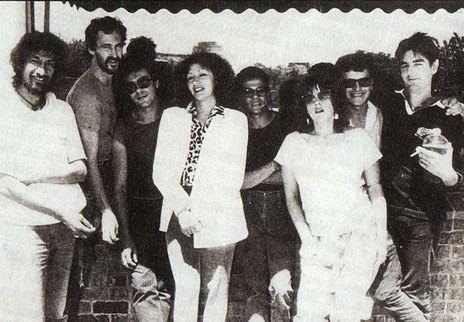
The Goodtime Band, summer 1984-85. Left to right, Sonny Day, Neil Edwards, Walter Bianco, Josie Rika, Mike Abbott, Beaver, Barry Saunders, Paul Hewson.
Photo credit:
Jane West collection
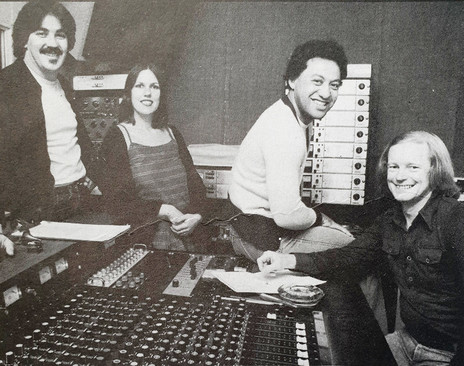
Woody - Peter Wood (keyboards, synths, trumpet, vocals), Beaver (vocals), Pat Flavell (drums, vocals), Paul Woolright (bass, percussion, vocals).
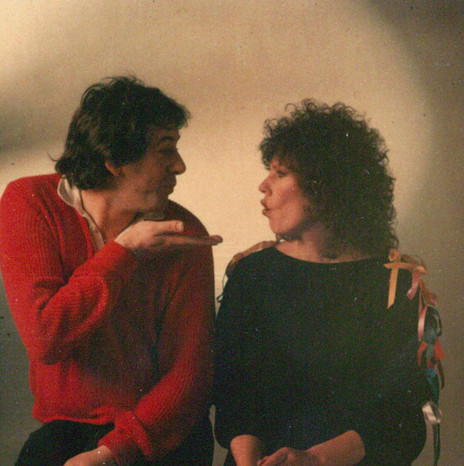
Hammond Gamble and Beaver, in a promotional photo for the film Should I Be Good? The pair played nightclub singers in the 1985 film, which also featured Harry Lyon, whose character was a musician and ex-con
Beaver and Bunny Walters - The Biggest Love (1990)
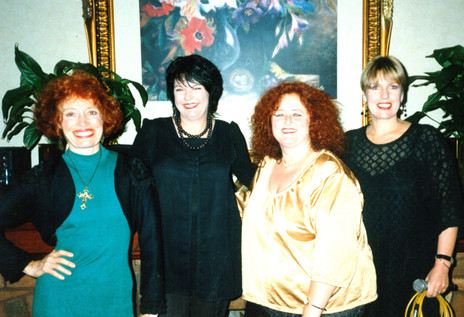
The First Ladies of Jazz, Auckland, early 1990s. From left: Linn Lorkin, Candy Alderton-Conway, Hattie St John, Beaver.
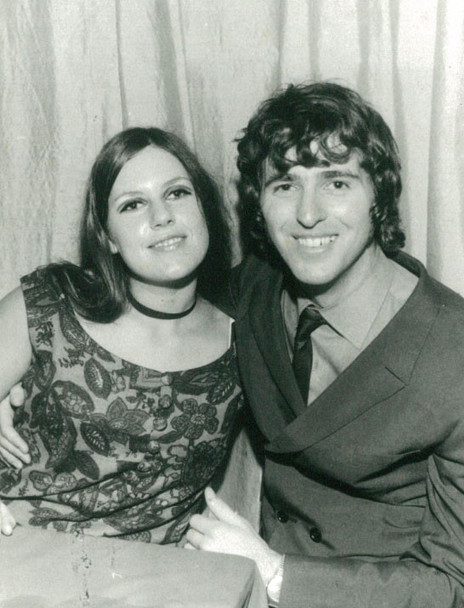
Beaver and friend, 1970
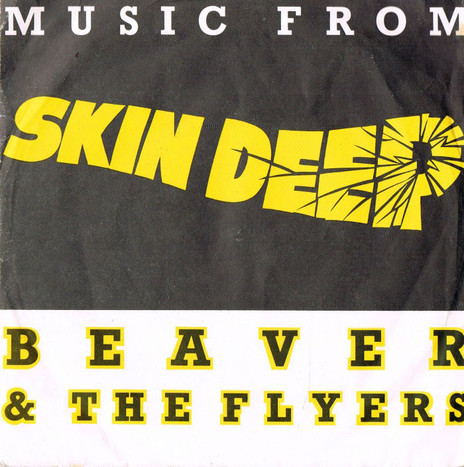
A promotional flyer for Beaver and the Flyers' single 'Skin Deep', from the 1978 Geoff Steven feature film
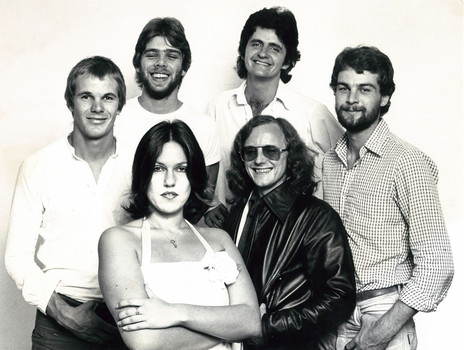
Beaver with The Flyers, 1978. Clockwise from bottom: Beaver, Neil Hannan, Richard Kennedy, Paul Clayton, David Gandar and Bud Hooper.
Labels:
EMI
RCA
Trivia:
Beaver’s sister Annette was also a singer, notably with Spats, the band which evolved into The Crocodiles.


